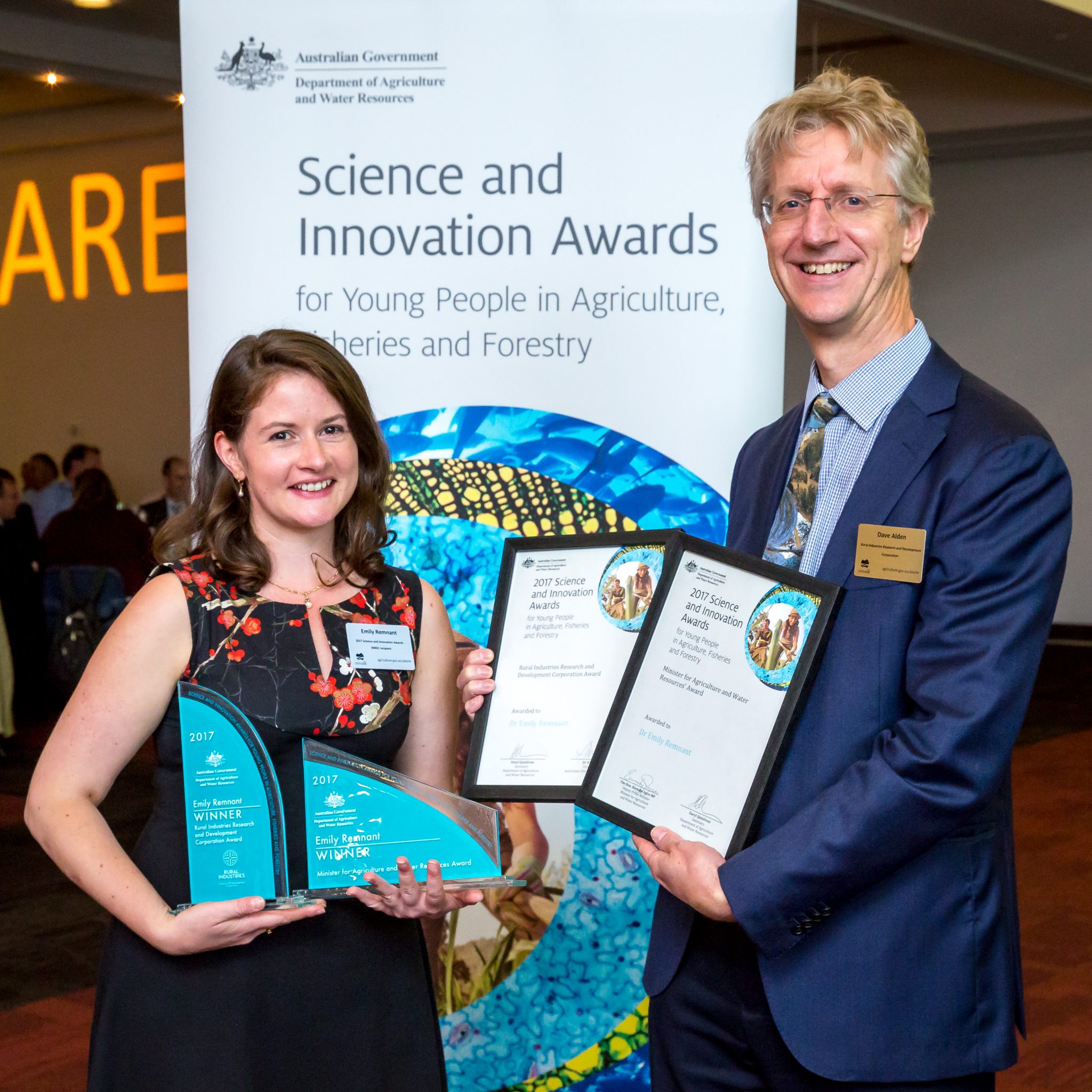Dr Emily Remnant from the University of Sydney has spent the past 12 months investigating immunisation of honey bees against virulent viruses spread by the Varroa mite.
Varroa is recognised as the world’s most damaging honey bee pest. While currently not established in Australia, it poses a huge threat to the international bee keeping industry and the global food supply chain, with the commercial value of honey bee pollination valued between $200 – $500 billion per annum.
Dr Remnant received the Minister for Agriculture and Water Resources Award in addition to the AgriFutures Australia sponsored 2017 Science and Innovation Award for Young People in Agriculture, Fisheries and Forestry, for her research in this area.
Currently there are no formal strategies in place to protect bees against viruses, but a recent series of trials undertaken by Dr Remnant and her Sydney based research team has shown promising results.
“The aim of my research was to improve honey bee health by developing and enabling a novel method to increase honey bee resistance to viruses using a natural bacterial symbiont, Wolbachia,” said Dr Remnant.
“The Wolbachia method has been shown to reduce virus levels in other insects and is currently used to reduce transmission of the dengue fever virus in mosquitos, which requires the development of Wolbachia positive embryos.
“After multiple unsuccessful attempts to inject Wolbachia directly into embryos, a complex technique trialled during my fellowship in New Zealand, I developed and implemented an alternative method of injecting Wolbachia into honey bee queen abdomens.









